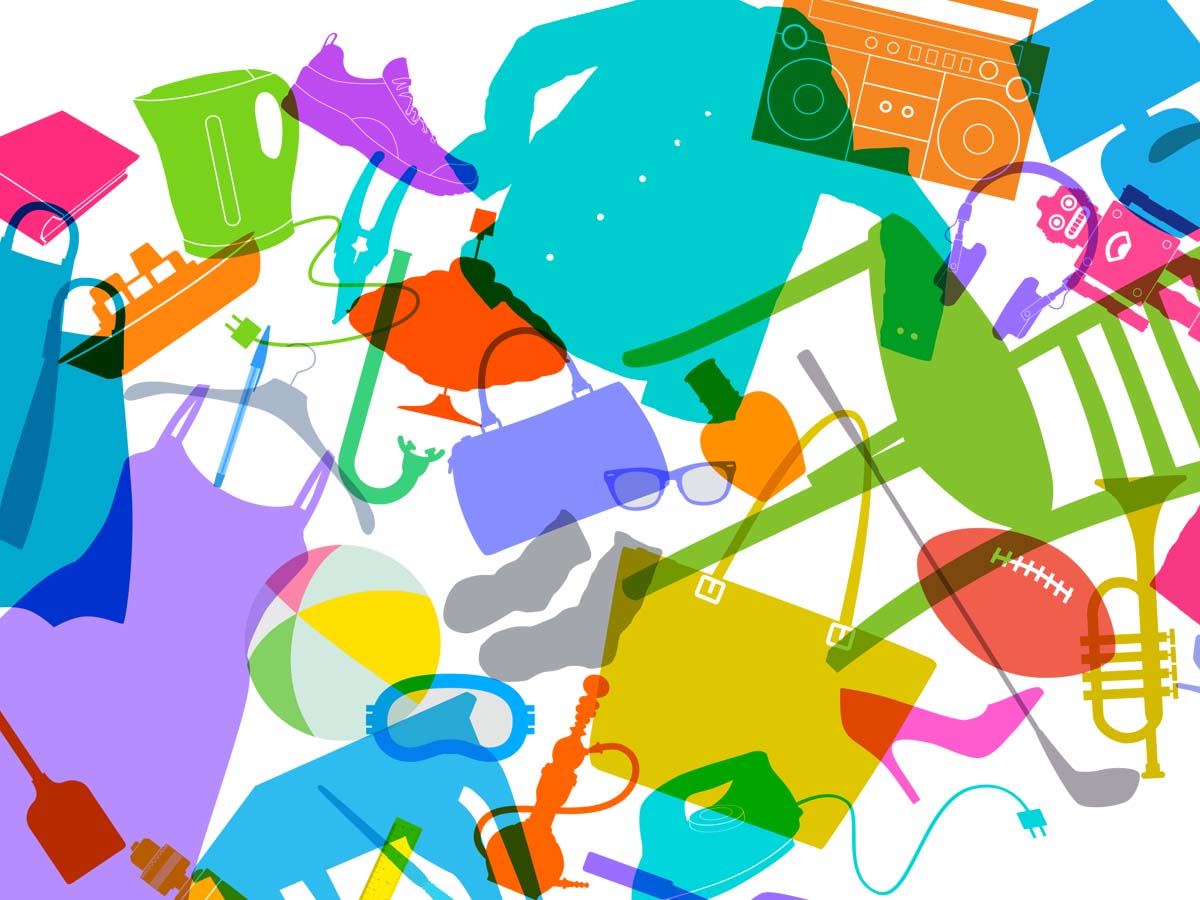Watching the devastation unfold in recent fires in both Jasper and Los Angeles is a stark and humbling reminder of life’s fragility.
The hurried evacuations, the relentless flames, and the heart-wrenching losses confront us with a profound truth: in the face of disaster, much of what we spend our lives accumulating is gone.
But what truly matters—the safety of our loved ones -leaves everything in the dust.
Tragedies like these, whether they happen to us, or not should, I think, help us to focus on what’s our priorities ought to be.
Is this who we are?
We all have a tendency to buy and keep stuff…possessions large and small. These belongings often serve as extensions of ourselves, symbols of our identity, or markers of success. We have often come to believe that they bring a sense of comfort and security, even stability.
Why accumulate?
Our modern culture often equates worth and success with possessions. It must be bigger, more elegant or more elaborate and more expensive. We fill our homes with items to chase temporary satisfaction instead of lasting values.
Sure, new shiny objects might bring momentary pleasure, but they rarely fulfill our deeper emotional needs. Psychologists refer to this as hedonic adaptation- a mindset that has us quickly returning to a baseline level of satisfaction thinking we can’t be happy unless more is acquired.
Amidst the tears, disruption, trauma and disappointment that a crisis brings and as things go up in flames we may also sudden realize what really matters.
When given mere minutes to decide what to save, it’s not the expensive furniture or gadgets we reach for, but the simple reminders of love, connection, and belonging.
What truly matters
In the aftermath of a tragedy, survivors often speak about the same fundamental realizations: that family, pets, and relationships are what matter most in the end. This truth is universal seems to be universal tapping into our basic needs for three things:
• Connection: At our essence, humans are social beings. Family and friends are our lifelines in times of joy and sorrow.
• Safety: Ensuring the safety of our loved ones and pets satisfies our most basic need for security.
• Meaning: The memories we hold that ground us in purpose and provide a sense of continuity, even in the face of loss.
These ‘needs’ align with the now famous framework: Maslow’s Hierarchy of Needs. In it, he underscores the importance of love, safety, and belonging as foundational to well-being.
Realigning our
What can we take away from these and other tragedies as outsiders and observers? For me, it is an opportunity to re-evaluate how I spend my time, use my energy, and spend my physical and emotional resources spent. Instead of accumulating things, I think I’d be wiser to:
• Invest in relationships by spending quality time with loved ones.
• Create more lasting memories through shared experiences, not material gifts.
• Appreciate the small, everyday moments—a meal with family, the wag of a pet’s tail, the laughter shared.
Tragedy is also often a bold reminder for all of us to practice gratitude – by all counts shown to increase happiness and resilience.
By focusing on the blessings we have, here and now—our family, our health, our pets—we build and nurture our emotional strength, personal resilience and ability to reach out and help others.
Finding resilience
For those directly affected, the journey forward will be arduous. Rebuilding homes and lives will require time, patience, and support from a lot of people.
But as many survivors have shared, a disaster strips life down to the essentials. When the fog lifts, they say that the real treasures are not the walls or the objects lost but the lives saved and the relationships strengthened in the face of adversity.
A final thought
Tragedy is a painful teacher, but it offers all of us the chance to reflect and realign. As we watch, support and continue to pray for those affected, let us honor their losses by cherishing the moments that make all of our lives truly meaningful. And let us live with the awareness that what truly matters cannot be bought, it must be hand-held and nurtured.
Dr. Elaine Dembe is a health and wellness practitioner in private practice for 45 years in Toronto. She is a Chiropractor and the author of 3 best-selling books. www.elainedembe.com
Image: iStock
Forging friendships not acquisitions
In one of his famous routines, the late comedian George Carlin joked, “A house is just a pile of stuff with a cover on it. Why do we accumulate so much?” It’s true. A lot of us are literally drowning in the things we’ve accumulated in our homes and offices. That clutter is an energy drain. Think of the time it takes just to find things, not to mention the effort expended figuring out where to put everything.
Long before Marie Kondo, the Queen of Decluttering came onto the scene I put my house on a diet, shedding excess baggage in the form of furniture, clothing, kitchen gadgets and nick-nacks.
I confess I did have help with my “diet” from a professional home and office organizer. Like a detective she walked from room to room carefully investigating the evidence spilling out of crowded cupboards, drawers and closets. The transformation took an entire day. I liposuctioned over 20 kilos of clothing into giant green garbage bags, liberating my closets, my body and my soul. Afterwards, my suits, blouses and pants were neatly arranged according to season. Like an old romance, the unloved clothing was discarded and given to charity.
And members of my extended family were thrilled to receive some of my better castoffs, or my “good junk” as they called it.
I wish I could say that this was a one-time fix. But, alas, I’ve found it necessary to perform a few decluttering missions over the years – most recently when my husband Marcelo and I got together. Fortunately, the annual community garage sale held on my street provides the perfect outlet for my castaways. Every year bargain hunters descend like vultures and pick through my junk (which they think is good stuff). Then, I imagine they sell it to someone else in their next garage sale.
Most of the individuals I’ve admired over the years and written about have, to a greater or lesser degree, already said goodbye to stuff. In fact, many are finding that they no longer want or need the things they once coveted. Each of them spoke of releasing and simplifying as a welcome process.
As their lives have evolved, they have found more meaning in relationships and activities and less in money or things.
Simply put, they are forging attachments in friendships and family, not in acquisitions. I’m reminded that when Gandhi died, everything he owned fit into a shoebox. And Plato once remarked while strolling through a marketplace, “Look at all the things I can do without!”
Source: “Use The Good Dishes.”












